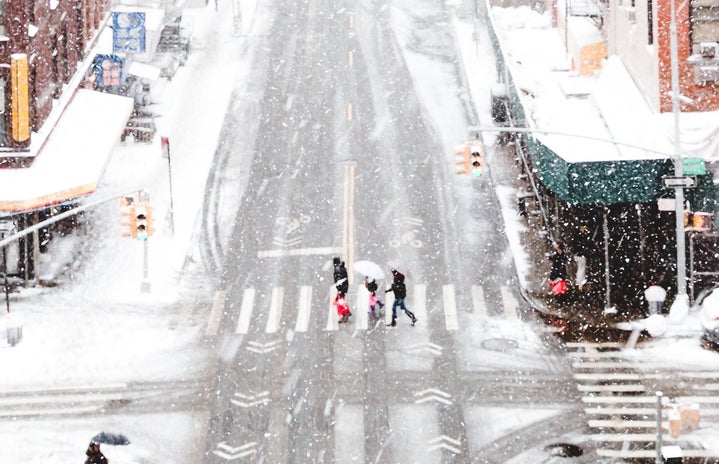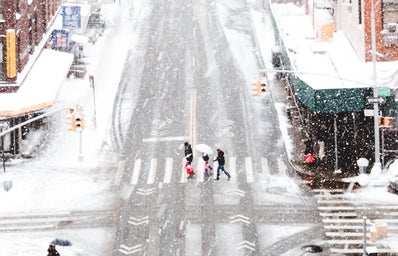In the aftermath of a winter storm that rocked the state of Texas on Valentine’s Day weekend of 2021, countless inappropriate Tweets were made at the expense of those unprepared for the frigid weather. Such internet activity could be indicative of a larger problem surrounding empathy.
Winter Storm Uri hit Texas with unprecedented wrath a little over two years ago. Starting with a cold front on Feb. 10, 2021 and ending with a last hard freeze on Feb. 20, snow, sleet, and extreme temperatures overwhelmed the state’s independent power grid and left millions of Texans without electricity. With an estimated 246 deaths due to exposure or conditions resulting from lack of power or resources due to the storm, Uri was an unforgettable event for many who call Texas home.
However, the most surprising part of this tragedy wasn’t that it remains Texas’s most costly weather disaster – surpassing even 2017’s Hurricane Harvey – but instead was the internet’s reaction to Texans dealing with winter weather, many for the first time in their lives. Looking back on the average American’s Twitter feed during Winter Storm Uri, it’s easy to find numerous Tweets laughing at Texans in their crisis.
These comments, coupled with a decisive lack of empathy and victim blaming, indicate a pattern surrounding how many people talk about the South and the struggles Southerners face. A prime example is the responses to a Tweet shared on Feb. 13, 2021 by Texan @BrittaneHall.
Replies, almost all of which were from users with no real name attached, ranged from a dismissive “And its still hilarious. Just drive slow, its that easy” to a contemptuous “They [Texans] act like its actual snowmen falling from the sky…we walk, freeze, start the car.”
This language may be indicative of a phenomenon known as an empathy gap. Defined by Dr. Itamar Shatz as a “cognitive bias that causes people to struggle to understand mental states that are different from their present state,” an empathy gap could explain why Texas’s struggle seemed worthy of destain. To non-Southerners who face winter conditions every winter, a world without salt and snow plows is unimaginable. As a result, their understanding of the South’s wintertime struggle is limited, contributing to the empathy gap.
The empathy gap carries over to the general language about Southerners dealing with Winter Storm Uri. In a Tweet by @xsergiocr, a resident of New York, New York, blames Southerners for their own misfortune.
Using words such as “stupid” and “these people” to refer to Texans is evidence of a long history of Southerners being stereotyped as less intelligent and inferior for reasons as simple as an accent.
A study by the University of Chicago found that children develop accent attitudes–stereotypical views of people based on speech patterns–as early as five years of age. Even young children tend to evaluate Northern-accented individuals as sounding “smarter” and “in charge”; the only attribute assigned to Southern-accented individuals was that they sounded “nicer.”
Although Southern accents sounding “nice” may seem positive, they can have negative connotations. “Nice” could be misunderstood as “simple” or “easily influenced” and can continue the notion that Southerners lack intelligence. This bias, coupled with the portrayal of certain stereotypes in popular media, may contribute to the empathy gap causing those living outside the South to see Southerners as less worthy of empathy and more deserving of the crises they face as the chance of extreme weather grows thanks to global warming.


